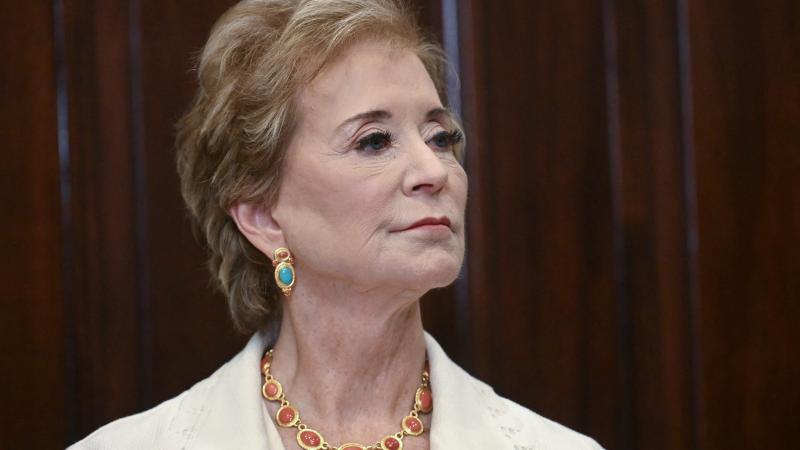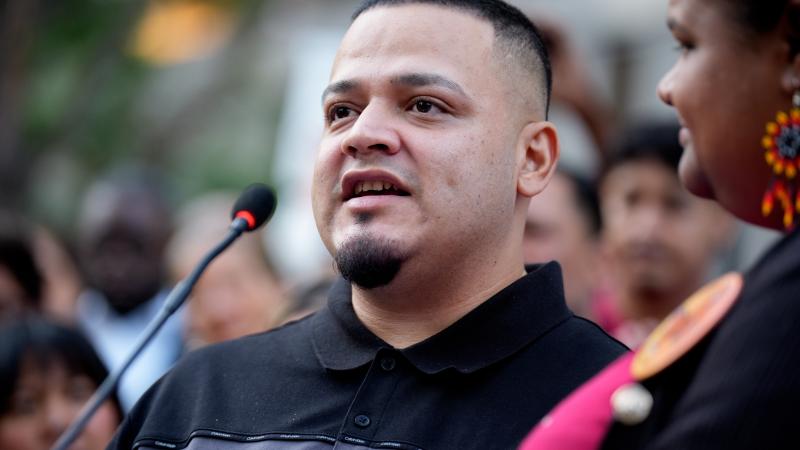GOP co-chair explains Trump's coronavirus briefings: 'There's just a massive distrust' in media
'The president doesn't have a partner in the mainstream media, whereas some might say Joe Biden does,' said Republican co-chair Tommy Hicks, Jr.
President Trump's daily coronavirus briefings help fill the gap of mistrust many Americans have toward the national media, says Tommy Hicks, Jr., Republican National Committee co-chairman.
"I think the American people, when they see the news, want to hear the truth," Hicks said in a podcast interview with Just the News. "And right now, there's just a massive distrust of what you're seeing out there. Which is why the president is talking to the American people every single day in these press conferences with the vice president and his team of experts."
Last month, Trump said at a coronavirus media briefing that he was frustrated by the media coverage of the administration's handling of the coronavirus and acknowledge this was in part due to his own administration needing to be more proactive.
Since then, the president's already launched a new media strategy that includes challenging Voice of America, completely restaffing his communications team (including moving his-then press secretary, Stephanie Grisham, to the East Wing), legally challenging the White House Correspondents' Association control of the White House briefing room and suing a Wisconsin television station.
Hicks said the fact that Trump's social media following is many multiples that of rival presidential candidate Joe Biden gives him the ability to bypass the traditional media gatekeepers to connect directly with voters.
"The reason why he has so many followers is he's been, and he's done this since 2015, he's out there talking directly to the American people," Hicks said. "And they appreciate that. So the president doesn't have a partner in the mainstream media, whereas some might say Joe Biden does. But the the messaging the president gets out there, every single day, many times a day is something that the American people appreciate."
Data from sources like the Pew Research Center show Trump supporters and Republicans have a deep distrust of the national media. Research by Tom Patterson, A Harvard University Kennedy School of Government professor of government and the press shows at least 80% of mainstream media coverage of Trump was negative during his first 100 days in office, what Patterson called an unprecedented figure.
On Monday, the White House cited a recent Gallup poll finding 55% of Americans disapprove of the media’s coronavirus coverage, while just 38% disapproving of the president's handling of the virus.
Hick said the coronavirus lockdown hadn't dampened enthusiasm for the campaign, which quickly converted to a digital format for online rallies instead of in-person gathers – he said the conversion to a virtual operation happened within a 24-hour period.
The campaign's quick pivot to a digital TV schedule for rallies has cultivated Trump affinity groups like Women For Trump, Black Voices For Trump, Catholics For Trump and Army For Trump. Hicks said fundraising has been strong, despite the economic downturn overall.
The RNC on Monday announced that it, along with Trump's re-election campaign and joint fundraising committees, raised more than $212 million in the first quarter of 2020, an amount that is $56 million more than the final quarter of 2019, or a 36% increase.
The Trump and RNC committees raised more than $63 million in March alone, bringing the total haul cycle to date to over $677 million. The RNC said this is $270 million more than the Obama re-election team had at the same point in 2012. The Trump and RNC campaign committees reported over $240 million cash on hand.
"Because of all his work and our great teams work, going into this crisis, we've got flexibility and we've got a lot of cash on hand," Hicks said. "So we're able to convert into this virtual campaign."
To hear the full podcast with Hicks, click below:















